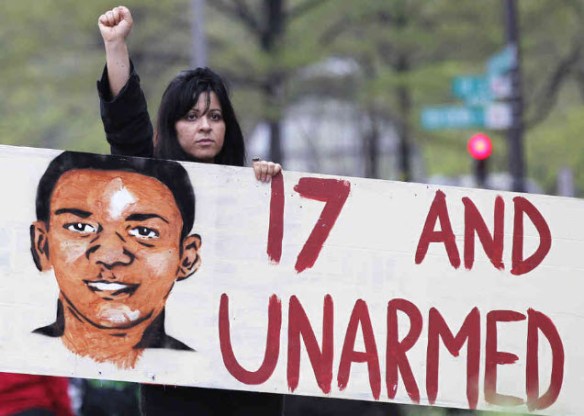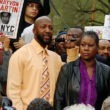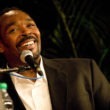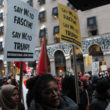The question leads from the close of Trayvon Martin’s life: What if he had been carrying a gun? In the aftermath of George Zimmerman’s acquittal in the death of Martin, many people, including President Barack Obama, have asked it. Would Trayvon be alive? Would Zimmerman? If Trayvon were a year older and licensed to carry, would he have been sent to prison for defending himself?
From such questions, a variant follows: should Trayvon have been carrying a gun? Should young men like him start to? Among others, Salon‘s Andrew O’Hehir raised the question, suggesting that in a society willing to break its own back bowing to gun rights, it’s a “reasonable response” for young black men to self-arm if they venture places where they’re likely to be surrounded by suspecting people. Writes O’Hehir: “While I would never advise someone in a vulnerable position … to arm themselves in self-defense, I damn sure don’t feel the right to judge them if they do.”
| Telling young black men to carry guns is not to level the playing field and ensure their safety. It is to accept the demise of civil society, to admit that we have no better solutions, and that we are little better than our past. |
The proposition carries heavy historical weight. The Black Panther Party embraced armed self-defense as a lawful and rational response to life in a violently oppressive society. They weren’t alone. Scholar and activist Akinyele Omowale Umoja recently published a book tracing streams of civil rights activism in Mississippi that relied heavily upon citizens’ willingness to carry and use arms for protection. Some black women in 1960s Chicago, meanwhile, took up arms to protect home and family from the city’s infamously racist mobs. Explained one: “Because we are not getting adequate police protection … we are now armed. We have two rifles and a .38 caliber revolver here. And I would not hesitate to use them if that should become necessary.”
Even the home of Martin Luther King, Jr., said a visitor in 1956, was “an arsenal.”
This list could stretch for pages, but what should concern us are not the number and names of black citizens who have taken up arms to protect themselves. Rather, we should consider the reasons why. Across time and place, the root causes have been two-fold.
First, the continuous breakdown of civil society around matters of race—a collapse that jettisons kindness for hate, empathy for disdain, knowledge for stereotype, trust for suspicion, peace for violence. “We are living on an island where there are savages … trying to kill us,” a rifle-wielding black woman in Chicago remarked in 1966. The “island” was a white neighborhood into which she and her kids had moved, and from which her neighbors were trying to burn her out.
Second is the state’s failure historically to protect black life. From martyrs well-known to those murdered in anonymity, American history is stacked with bodies of black people who were entitled to a state-sponsored safety that failed to materialize. From southern sheriffs to northern court and police systems to a federal government reluctant to use force in defense of civil rights, America’s record of protecting black well-being is poor. The deaths that followed are legion.
It is impossible for these historic, twinned failures of civil society and the state to not reverberate as we consider the (after)lives of Trayvon Martin and Jordan Davis and Darius Simmons, and thousands of black and brown kids raised in neighborhoods overwhelmed by an impoverishment of decent jobs and health care, failing schools, abusive criminal-justice systems, and an intra-communal violence built on desperation.
Surely, history and an understandable cynicism about our current racial, economic, and social politics may incline us toward seeing wisdom in black boys like Trayvon carrying guns to protect themselves. With American culture and law repeatedly devaluing the lives of people like him, there may be a logic to such self-defense.
But there is no salvation, no endgame, in the proposition. It leads nowhere but a society of seemingly infinite arms and limitless danger. Much of black America recognizes this: there’s a reason that, in spite of the fraught and often racist history of gun control, African Americans still overwhelmingly support it. It is because black communities know terribly well the burden of life in a society premised around fear, and in which the state vacates or fails in its responsibility to keep its citizens safe. That is, after all, a significant thread of our country’s racial history—one that’s been weaving for many generations now.
Within that context, telling young black men to carry guns is not to level the playing field and ensure their safety. It is to accept the demise of civil society, to admit that we have no better solutions, and that we are little better than our past. It is to tell Trayvon and Jordan and Darius and others, finally and unequivocally, that they’re on their own. To accept that idea would be a monstrous, awful thing. That it even merits discussion should paralyze us.
Should vulnerable people like Trayvon carry weapons? I do not know. But that we must ask the question should force us to hold to a mirror to the context that conjures it, and look steadily at the disfigured social contract being extended.
If we see with clear eyes, we will recoil at what we see.
Simon Balto is a Ph.D. candidate in history at the University of Wisconsin-Madison.







0 Comments